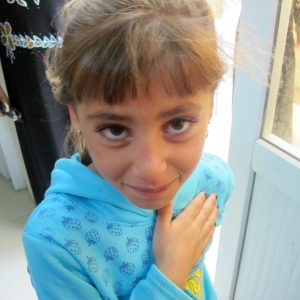
The last of the 4,000 soldiers in the 4th Stryker Brigade, 2nd Infantry Division, crossed the border from Iraq into Kuwait Thursday. There are no U.S. more combat brigade teams left in Iraq. All is going seemingly well for President Barack Obama’s plan to pull to leave just 50,000 troops there by September.
Hard to think about how it was then.
By then, I mean seven years ago, when the United States invaded Saddam Hussein’s Iraq and U.S. soldiers deployed in droves.
In 2003, I looked at the American Humvees and Abrams tanks rolling through Baghdad. The soldiers wore aviator glasses and pointed their M-16s triumphantly. I stood among crowds of Iraqis and like them, pondered the course of history.
I did not know then that more than 4,000 of those soldiers would die in Iraq, along with thousands of Iraqis, many of them caught in the middle of dirty urban warfare.
By the time I returned as an embedded reporter in 2005, Americans ruled the landscape.
Camp Liberty was a sprawling American base with air-conditioning, movie theaters, stores, restaurants and other amenities the Iraqis lacked. Even now, Iraqis say they have no electricity or other basic services. A young lieutenant who was waiting to catch a plane with me on the military side of the Baghdad airport told me that if the Americans could deliver electricity, they would win the war.
In a way, he was right. By 2008, Iraqis asked me why the world’s superpower could not give them something as basic as power.
This year, protests erupted over the lack of power. In a land where temperatures soar to 120-plus in the summer, it’s hard to live without a fan. Only two-thirds of Iraqi have their electricity needs met — in Baghdad, it averages to four hours a day.
I thought about the day when I returned to my tent at Camp Striker and the AC unit had shut off. I sat on my cot dripping buckets of sweat and and tried to imagine life for Baghdadis outside the camp.
Seven years after the war, basic services are still a problem in Iraq.
So is insecurity.
Many people like to point to the drop in violence as a marker for success in the war. But my Iraqi friends still worry about stepping out with their children.
A car bomb exploded in Ramadi Wednesday night, killing two people. That may not sound like a lot compared to the height of the war when hundreds died each month. But when it is your husband or your mother, it’s everything.
Another 48 people died Tuesday in an attack outside a military recruiting center in Baghdad.
When will the killing end in Iraq? When the Americans are gone? When the Americans are still there?
When will the government be formed? It has been almost six months since the parliamentary elections and still there are no agreements on forming a new government.
“Iraq is still at the beginning of the story of its evolution since 2003,” Ryan Crocker, the former American ambassador to Iraq, told CNN.
I cannot pretend to be an expert on Iraq and pass judgment on this day being hailed as another milestone in post-Saddam history.
Today, I am in the comfort of my Atlanta home, thinking back to all the suffering I saw in the past.
I think especially of Dahlia, a young girl I met in the barren fields of dust and scrub near Nasiriyah. She was walking testament to her name: Dahlia. A bright flower in the midst of drab.
She wore a crimson and lemon yellow printed robe, her head was covered in a black scarf – at 10, she was old enough to respect the modesty taught by her culture. She stood barefoot in front of a lone U.S. Humvee that stopped before entering the gates of Camp Cedar.
Dahlia’s father was killed by Saddam, she told me. She never went to school — there were no schools nearby. She lived in a makeshift tent with her mother and brother.
I asked her what she wanted to do when she grew up. “Nothing,” she said, as though she knew her fate was bound to the bleak sands of southern Iraq, that she would never break out of poverty.
She thought for a while longer. “I want to work at Cedar.”
That was in 2006. The U.S. military closed Cedar shortly after I met Dahlia. Now so many more of those bases are gone.
No, today, I cannot share in the optimism of all those who hail Iraq a success. I think of the hundreds of Dahlias I met in the midst of war.


Powerfully written. Evocative, human, thoughtful! Thanks for bringing it all back into perspective!
Excellent post. The real victory, if there is to be one, will take many more years. Can America hang in there long enough?